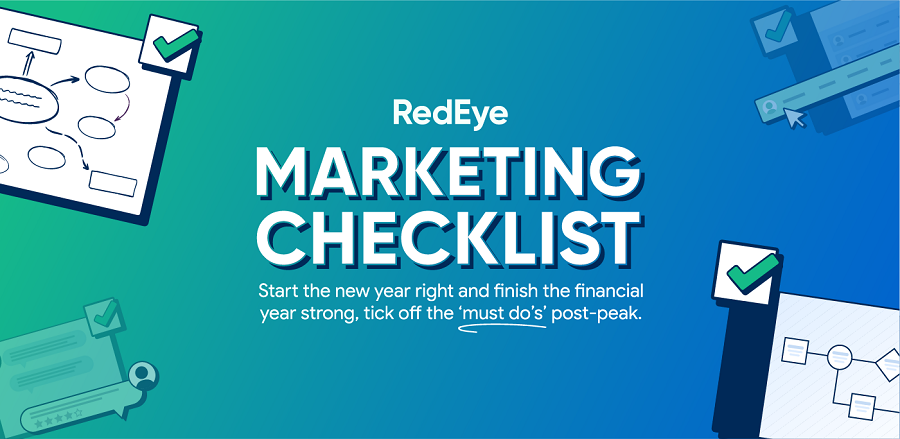Why online reviews are crucial to your search and social strategies
24 Aug 2015
_55d596f531c39-7.jpg)
Remember the days when reviews were the sole domain of consumer bodies like Which?, or assessments by professional critics in popular print publications? Times have most definitely changed. Though consumers still like to know what the experts think – and take note of awards and industry classifications – 90% of people make online review platforms their first point of call. A positive rating on websites like TripAdvisor or Amazon is an extremely valuable marketing tool. If customers are considering visiting a restaurant or hotel, or buying a product, a four-star or five-star rating can confirm their decision; while anything below a three may cause them to look elsewhere. Such star ratings are clearly visible in Google search results – and with social media platforms like Facebook amassing more reviews for businesses by the day, it’s more important than ever to effectively manage your online reputation as part of your overall digital marketing strategy.
Which platform is most important for your business?
While you want to have good reviews everywhere (who doesn’t?), first you need to consider which services are most relevant to you – and focus on those. In other words, where most of your target customers are likely to look first. To help you out, here’s CE’s quick rundown of several popular review platforms:
Platform:TripAdvisor
Essential for: Venues - Especially restaurants and hotels
How it works:TripAdvisor lists over 3.7m businesses and over 200m reviews – in the form of star ratings and comments. To leave a review, users must register as a member to prove they’re a genuine individual. Businesses who try to create false positive reviews are often caught and penalised, as TripAdvisor can detect where reviews originate (using IP addresses and similar technology). Venue managers have the right to reply to each review, but only once – there’s no opportunity for further dialogue.
Platform:Amazon
Essential for: Products – all industries
How it works: Once a product has been purchased, buyers have the option to leave a review for that product, with a star rating, comments and even the option to add video. Many products have hundreds (or even thousands) of reviews, meaning that the overall star rating has a high likelihood of being trustworthy. Even if sourcing a product elsewhere, consumers may check Amazon just to see how well-rated it is.
Platform: Google My Business
Essential for: Businesses – particularly venues and services, but also products
How it works: Anyone with a Gmail account (Google’s email) can leave a review for local businesses listed on Google+ (Google’s online directory). It hasn’t yet amassed as many users as TripAdvisor or Amazon, but itsreviews are highly visible within Google search results and gradually growing.
Platform:Yelp
Essential for: Local businesses
How it works: Just like TripAdvisor, users must become members in order to add a review – with categories including hotels, bars, restaurants, care homes, vets, etc. By the final quarter of 2014, Yelp had 135m unique visitors and 71m local reviews.
Platform:Yell.com
Essential for: Local businesses
How it works:The digital version of the traditional Yellow Pages directory has the facility for people to leave reviews, but has nowhere near the level of engagement of platforms like TripAdvisor. Nevertheless, it remains a well-known brand which often appears high in search results.
Platform:Facebook
Essential for: Businesses – particularly venues and services, but also products
How it works: Like Google, anyone with a Facebook account can add a star rating and comments to a local business listing, either upon ‘checking in’ while there, or after visiting. Businesses can control what appears on their page to some extent.
How about niche products and services?
Some businesses have more specific markets, or more discerning target audiences, so the mainstream options above may not secure the target audience they’re seeking. For example, in the care service sector, the website CareHome.co.uk is widely considered the central point of reference for families and professionals researching quality care; while beauty salons might want to list their business on Wahanda, an online review and booking platform that connects customers with businesses in their local area. TripAdvisor covers a myriad of venues for eating out, but those with more highbrow tastes are more likely to turn to websites like Hardens, or even ViaMichelin(where Michelin-starred venues and other Michelin recommendations are officially featured). Public reviews on these sites are currently limited – for example, Hardens distils survey results – but they possess the potential for future expansion. It’s also important for restaurateurs and premium groups to make sure their venues are accurately and fairly listed on such well-respected websites. So, find out if there are any smaller, more relevant sites for your market.
Impact on search results and social media
In organic search results, listings for businesses on websites like TripAdvisor and Facebook will often rank more highly than the brand’s own website, attracting phenomenal levels of traffic. Furthermore, each of these listings provides a linking opportunity, boosting the search engine optimisation (SEO) performance of the official website. In July 2014, the launch of Google’s Pigeon algorithm threw a greater spotlight on local visibility. Keen to present searchers with the most relevant content possible, it loves local-level reviews, as they prove that particular local businesses are genuine and represent a hot topic of discussion. Regularly updated content is always a firm favourite of Google’s. Reviews portals often offer an API-driven widget or badge that digital marketers can feature on their own websites, or other marketing channels. For example, TripAdvisor awards annual certificates of excellence for use on websites, as well as printed versions for real-life display. These represent a ‘stamp of approval’ that many users find reassuring.
Managing your online presence
We’ve established that a presence on review platforms is essential – but managing it is a whole other matter.
Is your business correctly listed?
If any details of your business are missing or listed incorrectly – such as location, description or contact details – it could harm your visibility when people are searching. So make sure they’re exactly as they should be.
How are you handling reviews and feedback?
If you’re getting positive comments, then great – but you need to engage with your audience regardless of the nature of consumer feedback.
NEGATIVE REVIEWS – Don’t just ignore these. If customers are already irritated by a disappointing experience, they’ll become even more irritated if their feedback isn’t acknowledged. In many cases, knowing that a business cares may be more important to people than getting compensation. Plus, they (and others reading the review) are more likely to return and give your business another chance if you apologise and are clearly determined to do better.
RESPONDING TO REVIEWS – Remember the old saying, ‘the customer is always right’? Even if in some cases a customer has been difficult, you won’t score any points with the public by responding with anger or criticism. Always take a professional, calm and friendly tone, no matter what’s been said about your business. And don’t be defensive – apologise for the negative experience and outline your plans to investigate or improve, where relevant.
Get support for your listings
If you’re struggling to keep your online listings up to date with changes in your business – or responses to customer reviews – there’s a way to make it easier. Here at CE, we have dedicated digital monitoring teams who can help by:
Assisting you with the claiming of each review profile at a business level
Optimising written content, images and other media for every listing, making sure that all details are present and correct
Regularly checking your listings and applying updates, which is especially important for multi-unit business estates
Monitoring comments and responding with messages that have the appropriate tone, style and content for your brand – promptly and around the clock (seven days a week, including outside office hours)
Ensuring that any potentially volatile crises are escalated to your own communication and PR teams for expert handling and mitigation
Offering crisis management to help stem the virality of particularly poor reviews
Do you need support with managing your online reputation? CE’s specialist monitoring and visibility teams can offer all the advice and assistance you need. Just ask.





Please login to comment.
Comments